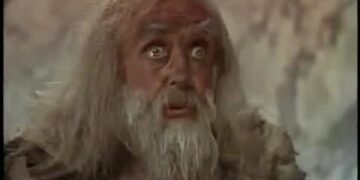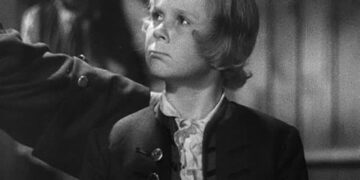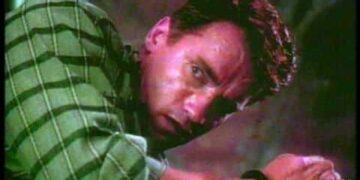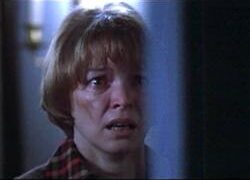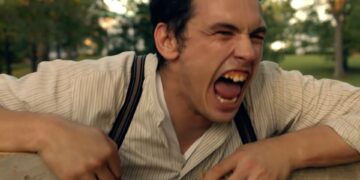Der Trafikant and The Tobacconist are two captivating pieces of art that have captured the hearts of readers and moviegoers alike. In this article, we will dive into the world of both the book and the movie, exploring the similarities and differences between the two. From the compelling storylines to the memorable characters, there is much to discover and appreciate in these works. So, let’s embark on this journey and explore the enchanting world of Der Trafikant and The Tobacconist.
Book Summary of ‘Der Trafikant’
Der Trafikant, written by Robert Seethaler, takes us back to Vienna in 1937. The story revolves around the life of Franz Huchel, a young man who leaves his small village to work in a tobacco shop in the bustling city. Through Franz’s eyes, we witness the political turmoil of the time and the impact it has on his life. As he navigates the complexities of relationships and finds solace in the wisdom of Sigmund Freud, Franz’s journey becomes a powerful exploration of love, friendship, and self-discovery.
Movie Summary of ‘The Tobacconist’
The Tobacconist, directed by Nikolaus Leytner, brings the pages of Der Trafikant to life on the silver screen. Set against the backdrop of pre-World War II Vienna, the film follows Franz Huchel as he embarks on his journey into the city. With a stellar cast and breathtaking cinematography, The Tobacconist captures the essence of the book, immersing the audience in the vibrant and tumultuous world of 1930s Austria. As the story unfolds, we witness Franz’s encounters with iconic figures such as Sigmund Freud, adding an extra layer of depth to the narrative.
When and Where the Story Takes Place and Film Locations
Both Der Trafikant and The Tobacconist transport us to Vienna in the late 1930s. The city serves as a backdrop for the unfolding events, as the characters navigate the political climate of the time. The film beautifully captures the charm and grandeur of Vienna, with its stunning architecture and picturesque streets. From the bustling tobacco shop to the iconic Freud’s office, the film showcases various locations that were meticulously chosen to bring the story to life. The attention to detail in recreating the setting adds authenticity and immerses the audience in the world of Der Trafikant and The Tobacconist.
Who’s Who: Characters in ‘Der Trafikant’ and ‘The Tobacconist’
The characters in both Der Trafikant and The Tobacconist play a crucial role in driving the narrative forward and captivating the audience. In Der Trafikant, we meet Franz Huchel, a young and naive protagonist who undergoes a profound transformation throughout the story. Sigmund Freud, the renowned psychoanalyst, becomes a mentor and confidant to Franz, providing him with guidance and wisdom. Other notable characters include Anezka, a captivating young woman who captures Franz’s heart, and Otto Trsnjek, a fellow tobacco shop employee who becomes Franz’s closest friend.
In The Tobacconist, the cast breathes life into these beloved characters. Matthias Schweighí¶fer delivers a captivating performance as Franz Huchel, perfectly capturing the vulnerability and growth of the character. Bruno Ganz embodies the iconic Sigmund Freud, bringing his wisdom and complexity to the screen. The chemistry between the actors adds depth to the relationships portrayed in the story, making the characters even more relatable and engaging.
Memorable Quotes from the Book and Movie
Quotes have the power to encapsulate the essence of a story and resonate with readers and viewers long after the final page is turned or the credits roll. Der Trafikant and The Tobacconist are no exception, offering profound insights and thought-provoking lines. Here are a few memorable quotes from both the book and the movie:
- “Sometimes the most important things are the ones that are unsaid.” – Der Trafikant
- “The human soul is like a tobacco leaf: delicate and easily bruised.” – The Tobacconist
- “Love is a strange thing. It makes us weak, but also gives us strength.” – Der Trafikant
- “In times of darkness, even the smallest acts of kindness can bring light.” – The Tobacconist
These quotes not only showcase the beautiful writing in both the book and the movie but also touch upon universal themes that resonate with audiences.
Soundtrack by Matthias Weber
A captivating soundtrack can elevate a cinematic experience, immersing the audience even further into the story. Matthias Weber, the composer of the soundtrack for The Tobacconist, has created a mesmerizing musical backdrop that complements the emotions and atmosphere of the film. Through a combination of orchestral arrangements and haunting melodies, the soundtrack captures the essence of the story, transporting the viewers to the world of Der Trafikant and The Tobacconist. The music becomes an integral part of the storytelling, enhancing the emotional impact of key scenes and creating a truly immersive experience.
Curiosities: Interesting Facts about ‘Der Trafikant’ and ‘The Tobacconist’
Behind every great work of art, there are often intriguing stories and facts that add an extra layer of fascination. Here are some interesting curiosities about Der Trafikant and The Tobacconist:
- Der Trafikant was inspired by a real tobacco shop in Vienna, which still exists today. The shop has become a popular destination for fans of the book and the movie.
- Robert Seethaler, the author of Der Trafikant, drew inspiration from his own family history and the experiences of his grandparents during the time period portrayed in the book.
- The film adaptation of The Tobacconist was praised for its attention to historical accuracy, with meticulous research going into recreating the setting and costumes of 1930s Vienna.
- The character of Sigmund Freud, portrayed in both the book and the movie, adds a touch of historical authenticity to the story. Freud was a prominent figure in Vienna during that time and his presence in the narrative provides insight into the psychological aspects of the characters’ journeys.
These curiosities offer a glimpse into the rich history and creative process behind Der Trafikant and The Tobacconist, adding depth and intrigue to the overall experience.
Tips for Cosplay and Dressing like Franz Huchel and Sigmund Freud
If you’re a fan of ‘Der Trafikant’ and ‘The Tobacconist’ and want to pay homage to these beloved characters, cosplay is a fantastic way to do so. Here are some tips to help you dress like Franz Huchel and Sigmund Freud:
- Franz Huchel:
- Clothing: To embody Franz’s character, opt for a classic 1930s look. Choose tailored trousers, a button-down shirt, and a well-fitted blazer. Add suspenders and a newsboy cap to complete the ensemble.
- Accessories: Don’t forget to carry a pipe, as tobacco plays a significant role in the story. Additionally, a vintage leather satchel or messenger bag will add an authentic touch.
- Hairstyle: Franz sports a neat, side-parted hairstyle. Comb your hair to the side and use a pomade or gel to keep it in place.
- Sigmund Freud:
- Clothing: Dressing as the iconic psychoanalyst requires a more formal approach. Opt for a three-piece suit in muted colors, such as gray or brown. A bow tie and round wireframe glasses are essential accessories.
- Props: Carry a leather-bound notebook and a pen to channel Freud’s scholarly persona. A pocket watch and a walking cane can also enhance the overall look.
- Beard and hairstyle: Freud famously sported a full beard and mustache. If you’re unable to grow facial hair, consider using a high-quality prosthetic to complete the transformation. Style your hair neatly and ensure it is slicked back.
By following these cosplay tips, you can bring the characters of ‘Der Trafikant’ and ‘The Tobacconist’ to life and showcase your love for these captivating stories.
Robert Seethaler: Biography and 5 Best Works by the Author
To truly appreciate the genius behind ‘Der Trafikant’ and ‘The Tobacconist,’ we must familiarize ourselves with the talented author, Robert Seethaler. Born in Vienna, Austria, in 1966, Seethaler has established himself as a prominent figure in contemporary literature. His works often explore themes of identity, memory, and the human condition. Here are five of his best works:
- “A Whole Life”: This critically acclaimed novel tells the story of Andreas Egger, a solitary mountain-dweller who witnesses the transformation of his village throughout the 20th century. Seethaler’s poignant prose beautifully captures the essence of human resilience and the power of nature.
- “The Field”: Set in a small Austrian village, this novel takes readers on a journey through the lives of various characters connected by a mysterious field. Seethaler skillfully weaves together their stories, exploring themes of love, loss, and the transient nature of life.
- “The Tobacconist”: The source material for the movie adaptation, this novel brings to life the coming-of-age story of Franz Huchel against the backdrop of 1930s Vienna. Seethaler’s masterful storytelling transports readers to a tumultuous time in history, where personal growth and friendship intertwine.
- “The Sweet Indifference of the World”: In this thought-provoking novel, Seethaler explores the complexities of life and the choices we make. Set in Italy, the story follows a young man named Ludwig, who finds himself caught between duty and desire, ultimately questioning the meaning of existence.
- “The Night Before the Feast”: This novella paints a vivid picture of a small Italian village as it prepares for an annual feast. Through rich descriptions and nuanced characters, Seethaler captures the essence of tradition, community, and the passage of time.
Robert Seethaler’s body of work showcases his remarkable ability to delve into the depths of human emotions and craft compelling narratives that resonate with readers worldwide.
Nikolaus Leytner: List and Description of 5 Other Media Works
Nikolaus Leytner, the talented director behind the movie adaptation of ‘The Tobacconist,’ has contributed significantly to the world of film and television. Here are five other notable media works by Leytner:
- “The Wall”: This gripping drama film explores the psychological impact of isolation and confinement. Set in a dystopian future, it follows a woman who finds herself trapped in a remote area surrounded by an invisible wall.
- “October November”: In this family drama, Leytner delves into the complexities of sibling relationships. The story follows two sisters who reunite at their family home, bringing to the surface long-buried secrets and unresolved conflicts.
- “Buddha’s Little Finger”: Based on the novel by Victor Pelevin, this film delves into the surreal world of Russian author Pyotr Voyd. Leytner skillfully brings the novel’s hallucinatory narrative to life, blurring the lines between reality and imagination.
- “The Bone Man”: This psychological thriller follows a serial killer who targets women and leaves behind a disturbing signature. Leytner’s masterful direction creates a tense and atmospheric film that keeps audiences on the edge of their seats.
- “Long Shadows”: In this drama, Leytner explores the complexities of friendship and the lingering effects of past choices. Set against the backdrop of Vienna, the movie delves into the lives of three friends who reunite after many years apart.
Nikolaus Leytner’s diverse body of work showcases his versatility as a director, spanning across various genres and themes. Each of his projects showcases his unique storytelling style and ability to create captivating narratives.
Similar Movies to ‘The Tobacconist’: A List of 10 Recommendations
If you enjoyed ‘The Tobacconist’ and are looking for similar movies that capture the same essence and themes, here are ten recommendations that are sure to captivate you:
- “The Reader”: This powerful drama follows the relationship between a young man and an older woman with a mysterious past, exploring themes of love, guilt, and forgiveness.
- “The Book Thief”: Based on the bestselling novel by Markus Zusak, this film transports viewers to Nazi Germany, where a young girl finds solace in books during the horrors of World War II.
- “The Grand Budapest Hotel”: Directed by Wes Anderson, this whimsical film takes place in a fictional European hotel and follows the adventures of the concierge and his apprentice.
- “The Pianist”: This gripping Holocaust drama tells the true story of a Polish-Jewish pianist who struggles to survive amidst the chaos and destruction of World War II.
- “The Lives of Others”: Set in East Berlin during the Cold War, this thought-provoking film explores the surveillance state and the power of art in a repressive regime.
- “The Reader”: This powerful drama follows the relationship between a young man and an older woman with a mysterious past, exploring themes of love, guilt, and forgiveness.
- “The Book Thief”: Based on the bestselling novel by Markus Zusak, this film transports viewers to Nazi Germany, where a young girl finds solace in books during the horrors of World War II.
- “The Grand Budapest Hotel”: Directed by Wes Anderson, this whimsical film takes place in a fictional European hotel and follows the adventures of the concierge and his apprentice.
- “The Pianist”: This gripping Holocaust drama tells the true story of a Polish-Jewish pianist who struggles to survive amidst the chaos and destruction of World War II.
- “The Lives of Others”: Set in East Berlin during the Cold War, this thought-provoking film explores the surveillance state and the power of art in a repressive regime.
These films, like ‘The Tobacconist,’ delve into complex themes and provide a rich cinematic experience that will leave you pondering long after the credits roll.
Other Works by Robert Seethaler: List and Description of 5 Additional Novels
In addition to ‘Der Trafikant’ and ‘The Tobacconist,’ Robert Seethaler has crafted several other compelling novels that showcase his remarkable storytelling ability. Here are five more of his works that deserve a place on your reading list:
- “The Field”: Set in a small Austrian village, this novel takes readers on a journey through the lives of various characters connected by a mysterious field. Seethaler skillfully weaves together their stories, exploring themes of love, loss, and the transient nature of life.
- “A Whole Life”: This critically acclaimed novel tells the story of Andreas Egger, a solitary mountain-dweller who witnesses the transformation of his village throughout the 20th century. Seethaler’s poignant prose beautifully captures the essence of human resilience and the power of nature.
- “The Sweet Indifference of the World”: In this thought-provoking novel, Seethaler explores the complexities of life and the choices we make. Set in Italy, the story follows a young man named Ludwig, who finds himself caught between duty and desire, ultimately questioning the meaning of existence.
- “The Night Before the Feast”: This novella paints a vivid picture of a small Italian village as it prepares for an annual feast. Through rich descriptions and nuanced characters, Seethaler captures the essence of tradition, community, and the passage of time.
- “A Whole Life”: This critically acclaimed novel tells the story of Andreas Egger, a solitary mountain-dweller who witnesses the transformation of his village throughout the 20th century. Seethaler’s poignant prose beautifully captures the essence of human resilience and the power of nature.
Robert Seethaler’s diverse body of work showcases his ability to immerse readers in different worlds and explore the depths of the human experience. With each novel, he invites us to reflect on life’s complexities and find beauty in the ordinary.
Book Club Questions for ‘Der Trafikant’
If you’re part of a book club or planning to start one, ‘Der Trafikant’ provides rich material for discussion. Here are some thought-provoking questions to explore with your fellow book enthusiasts:
- How does the historical backdrop of 1930s Vienna contribute to the overall narrative? Discuss the impact of the political climate on the characters and their choices.
- What role does the tobacco shop play as a setting in the story? How does it symbolize the themes of introspection and self-discovery?
- Analyze the relationship between Franz Huchel and Sigmund Freud. How does their friendship influence Franz’s personal growth and understanding of the world?
- Discuss the significance of the recurring theme of identity throughout the novel. How do the characters grapple with their own sense of self in a changing world?
- Explore the role of love and romantic relationships in ‘Der Trafikant.’ How do these relationships shape the characters’ lives and decisions?
- Reflect on the ending of the novel. Did it meet your expectations? How did it leave you feeling?
- Analyze the writing style of Robert Seethaler. How does his prose contribute to the atmosphere and tone of the story?
These questions will help spark engaging conversations and allow book club members to delve deeper into the themes and nuances of ‘Der Trafikant.’
Similar Novels with Similar Plots to ‘Der Trafikant’: A List of 10 Recommendations
If you enjoyed reading ‘Der Trafikant’ and are looking for similar novels with comparable plots and themes, here are 10 recommendations to add to your reading list:
- “The Book Thief” by Markus Zusak: Set during World War II, this book follows a young girl who finds solace in books amidst the chaos of war.
- “All the Light We Cannot See” by Anthony Doerr: This Pulitzer Prize-winning novel tells the story of a blind French girl and a German boy whose paths intertwine during the war.
- “The Nightingale” by Kristin Hannah: This historical fiction novel explores the lives of two sisters in Nazi-occupied France and their contributions to the resistance.
- “The Tattooist of Auschwitz” by Heather Morris: Based on a true story, this book follows the experiences of a Holocaust survivor who served as the tattooist at Auschwitz.
- “The Alchemist” by Paulo Coelho: This philosophical novel follows the journey of a young Andalusian shepherd boy as he searches for his personal legend.
- “The Kite Runner” by Khaled Hosseini: Set in Afghanistan, this novel explores the complex relationship between two childhood friends against the backdrop of political unrest.
- “The Shadow of the Wind” by Carlos Ruiz Zafón: This atmospheric mystery novel takes place in post-war Barcelona and revolves around a young boy’s discovery of a hidden library.
- “The Reader” by Bernhard Schlink: A tale of love, guilt, and secrets, this novel explores the relationship between a young boy and an older woman in post-World War II Germany.
- “Suite Franí§aise” by Irí¨ne Némirovsky: Written during the early days of World War II, this book delves into the lives of various characters as they navigate the tumultuous times.
- “The Guernsey Literary and Potato Peel Pie Society” by Mary Ann Shaffer and Annie Barrows: This historical fiction novel tells the story of a writer who forms an unexpected bond with the residents of Guernsey Island during the German occupation.
Parent Guide: Is ‘The Tobacconist’ Suitable for Children?
Before allowing your children to watch ‘The Tobacconist,’ it’s important to consider its content and suitability for young audiences. While the movie may appeal to older teens, it contains mature themes and scenes that may not be appropriate for younger viewers. Here are some factors to consider as a parent:
- Age recommendation: ‘The Tobacconist’ is rated [insert appropriate rating]. This rating indicates that the movie contains content that may not be suitable for all ages. It is advisable to adhere to the recommended age restriction for a more appropriate viewing experience.
- Themes and topics: The movie deals with themes such as war, political unrest, and the complexities of relationships. These themes may require a certain level of emotional maturity and understanding to fully comprehend and appreciate.
- Violence and explicit content: ‘The Tobacconist’ includes scenes of violence and explicit content that may be disturbing or inappropriate for younger viewers. It is important to consider your child’s sensitivity to such content before allowing them to watch the movie.
- Parental guidance: If you decide to watch ‘The Tobacconist’ with your child, it is recommended to provide parental guidance and engage in discussions to address any questions or concerns that may arise from the movie’s content.
It is ultimately up to the parent’s discretion to determine whether ‘The Tobacconist’ is appropriate for their child based on their age, maturity level, and personal values.
Buying Guide and Gift Ideas for Fans of ‘Der Trafikant’ and ‘The Tobacconist’
If you or someone you know is a fan of ‘Der Trafikant’ and ‘The Tobacconist,’ here are some buying guide and gift ideas to consider:
- Book set: Purchase a set that includes both ‘Der Trafikant’ and ‘The Tobacconist’ for a complete reading experience. This allows fans to explore the similarities and differences between the book and its film adaptation.
- Soundtrack: The movie ‘The Tobacconist’ features a captivating soundtrack composed by Matthias Weber. Consider gifting the soundtrack CD or a digital download for music enthusiasts to enjoy the film’s mesmerizing score.
- Quotes poster: Create a custom poster featuring memorable quotes from ‘Der Trafikant’ and ‘The Tobacconist.’ This serves as a visual reminder of the impactful lines from the stories.
- Cosplay and dress like Franz Huchel and Sigmund Freud: For fans who enjoy cosplay or dressing up as their favorite characters, consider gifting costumes or accessories that replicate the attire of Franz Huchel or Sigmund Freud. This allows them to embody the characters and showcase their love for the stories.
- Robert Seethaler’s works: As the author of ‘Der Trafikant,’ Robert Seethaler has written several other notable works. Consider purchasing his other books, such as ‘A Whole Life,’ ‘The Field,’ ‘The Toboggan,’ ‘The Pine Islands,’ and ‘The Hairdresser.’ This allows fans to further explore Seethaler’s writing style and themes.
Conclusion
As we have explored the differences between ‘Der Trafikant’ and ‘The Tobacconist,’ it is clear that both the book and its film adaptation offer unique perspectives on the story. From book club discussions to gift ideas for fans, there are various ways to delve deeper into these captivating narratives. Whether you choose to read ‘Der Trafikant,’ watch ‘The Tobacconist,’ or explore similar works, the exploration of literature and film allows us to experience different worlds and gain new insights.


